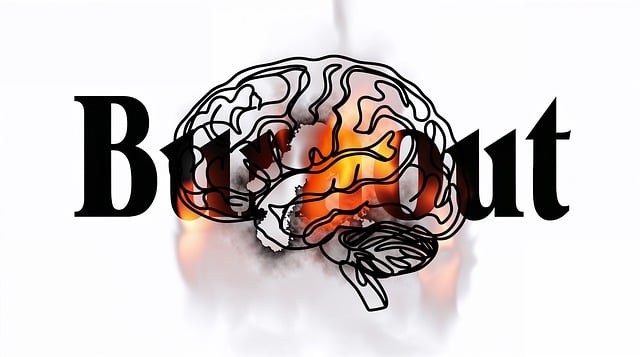Stress management is a key component of Colorado Springs Self-Esteem Therapy, targeting chronic stress from work, relationships, and finances that can harm mental and physical health. Professionals identify root causes through tailored workshops and training, reducing stress effects via Risk Management Planning for Mental Health Professionals. These workshops, focusing on personalized content, risk management, cultural competency, and active engagement, enhance resilience and improve quality of life, fostering a supportive community and mental illness stigma reduction. Post-workshop follow-ups ensure lasting impact, with therapists measuring improvements in stress levels, coping mechanisms, and overall well-being through communication strategies and community outreach programs.
In today’s fast-paced world, stress management is a vital skill. For organizations in Colorado Springs seeking to enhance employee well-being, our comprehensive guide is essential reading. We explore effective strategies for organizing workshops that tackle stress head-on, focusing on both the individual and organizational levels. From understanding the impact of stress to engaging interactive sessions, this article provides insights into designing successful workshops, culminating in meaningful post-workshop follow-up and measurable success.
- Understanding Stress and Its Impact on Well-being
- Designing Effective Stress Management Workshops
- Engaging Participants: Strategies for Interactive Sessions
- Post-Workshop Follow-up and Measuring Success
Understanding Stress and Its Impact on Well-being

Understanding stress is a crucial step in managing it effectively. Stress can stem from various sources, such as work pressure, personal relationships, or financial constraints. It’s essential to recognize that chronic stress can significantly impact overall well-being, affecting both mental and physical health. In Colorado Springs Self-Esteem Therapy, professionals focus on identifying the root causes of stress to develop tailored strategies for mitigation.
Risk Management Planning for Mental Health Professionals plays a pivotal role in mitigating these effects. By integrating Stress Management techniques into their practices, therapists and counselors can foster Mental Illness Stigma Reduction Efforts, creating safer and more supportive environments for clients. Through workshops and training, individuals learn valuable tools to navigate stressful situations, ultimately enhancing their resilience and overall quality of life.
Designing Effective Stress Management Workshops

Designing Effective Stress Management Workshops involves a nuanced approach to cater to diverse needs in Colorado Springs Self-Esteem Therapy settings. Workshops should be structured as interactive and engaging sessions, incorporating both theoretical knowledge and practical exercises. Facilitators should start by assessing participants’ baseline stress levels and personal challenges through pre-workshop assessments or icebreakers. This foundation allows for personalized content, ensuring everyone receives relevant coping skills development tailored to their mental health professional backgrounds.
Incorporating Risk Management Planning for Mental Health Professionals is crucial, providing strategies for burnout prevention and self-care. Additionally, training in Healthcare Provider Cultural Competency can enrich workshops by encouraging inclusive practices, as stress manifests differently across diverse populations. Engaging activities like role-playing scenarios or group discussions facilitate the sharing of experiences and foster a sense of community among participants, enhancing learning outcomes and long-term behavioral changes.
Engaging Participants: Strategies for Interactive Sessions

Engaging participants is key to successful stress management workshops. Interactive sessions that encourage active participation can significantly enhance learning and retention. One effective strategy is incorporating group discussions, where attendees share their experiences and perspectives on stress triggers and coping mechanisms. Facilitators can prompt these conversations by asking open-ended questions related to daily stressors and personal resilience strategies. This not only fosters a sense of community but also allows participants to learn from one another’s strengths and challenges.
Additionally, practical exercises like role-playing scenarios or guided mindfulness activities can make the workshops dynamic and memorable. For instance, healthcare providers attending workshops focused on burnout prevention strategies could practice stress-reduction techniques in simulated patient interaction roles. These interactive elements cater to diverse learning styles, ensuring that participants leave with tangible tools for managing stress effectively. Such approaches are especially beneficial in Colorado Springs Self-Esteem Therapy settings, where building resilience and trauma support services go hand in hand with fostering a supportive and engaging workshop environment.
Post-Workshop Follow-up and Measuring Success

After facilitating stress management workshops, following up with participants is a crucial step to ensure lasting impact and measure the success of the program. This process involves maintaining open lines of communication with attendees through various means such as email newsletters or one-on-one check-ins. During these interactions, therapists can gather valuable feedback, assess the effectiveness of the workshop in improving participants’ stress levels, and offer additional resources tailored to individual needs.
Measuring success goes beyond participant satisfaction surveys. It includes tracking improvements in key areas like reduced stress symptoms, enhanced coping mechanisms, and improved overall well-being. At Colorado Springs Self-Esteem Therapy, we implement a comprehensive approach that incorporates communication strategies, community outreach program initiatives, and risk management planning for mental health professionals to ensure the workshop’s positive effects are not only observed but also integrated into participants’ daily lives.
Stress management workshops play a pivotal role in enhancing well-being, as evidenced by their impact on individuals seeking self-esteem therapy in Colorado Springs. By combining education, interaction, and follow-up, these sessions equip participants with tools to navigate life’s challenges effectively. Implementing strategies outlined in this article—from understanding stress to measuring success—ensures workshops that foster meaningful engagement and positive change, ultimately promoting a healthier, more resilient community in Colorado Springs.














